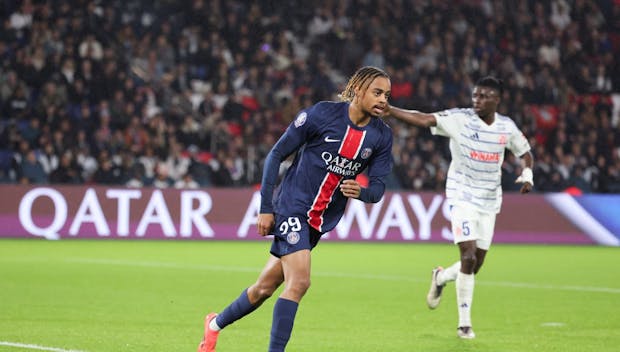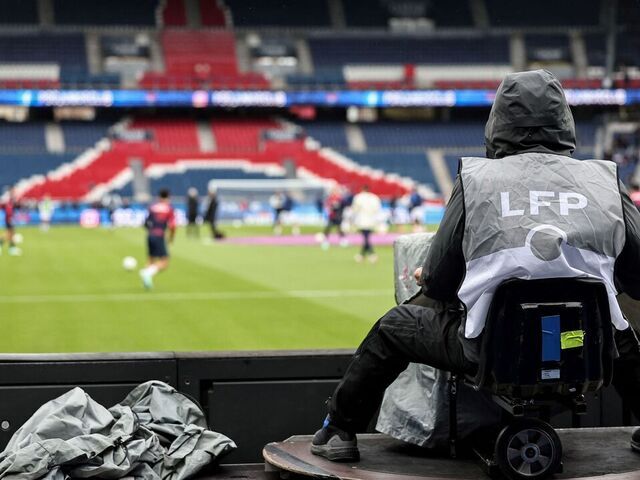
Ligue 1 in Crisis: The Fallout from the DAZN Broadcast Deal Collapse

Ligue 1 is currently grappling with a severe financial crisis following the collapse of its media rights agreement with DAZN, plunging clubs into a precarious situation as the conclusion of the season approaches. The breakdown of this partnership, which was initially seen as a lifeline for the league, now raises urgent concerns about the financial health of Ligue 1 and its capacity to sustain competitive football in France.
The fallout began when DAZN rejected a financial proposal from the French Professional Football League (LFP) aimed at resolving ongoing disputes regarding the broadcasting rights. The split has sent shockwaves through the league, with clubs now facing unprecedented economic challenges. Reports suggest that the cumulative losses across Ligue 1 and Ligue 2 could reach a staggering 1.2 billion euros by season's end, exacerbating the already dire straits of many clubs.
According to a recent Deloitte report, there were clear indicators of the impending collapse. The report highlighted frustrations among existing broadcasting partners and a notable lack of competitive tension in the market, which contributed to the devaluation of domestic broadcast rights. As Ligue 1 clubs, especially those not bolstered by wealthy investors, scramble to find alternatives, the future of their operations hangs in the balance.
Economic Fallout and Club Struggles
Clubs like Le Havre, Montpellier, Angers, and Reims are reportedly among those in the most precarious financial positions. Many of these teams depend heavily on broadcast revenue and, without it, face the grim reality of potential relegations and the associated economic repercussions. “The next deadlines are vital for us to finish the season,” said one anonymous club president to RMC Sport, highlighting the desperation that permeates the league.

The ramifications of this fallout are already visible in the marketplace. With diminishing revenues, clubs may struggle to retain key players or attract new talent. The specter of financial instability looms large, casting doubt over the viability of Ligue 1 as a competitive league. Teams that previously relied on a steady influx of cash from broadcast deals may now be forced to divest or restructure their operations, risking long-term consequences.
The Need for New Partnerships
As the crisis deepens, the focus shifts to the LFP and its urgent need to secure new broadcasting partnerships. The league cannot afford to enter a prolonged period without solid media rights, as this would likely undermine its status as one of Europe’s top football leagues. Suggestions have emerged regarding potential negotiations with new streaming platforms or traditional broadcasters, but time is of the essence.
The LFP must act swiftly to stabilize the league and restore confidence among fans and investors. The prospect of entering the next season without a broadcasting partner could lead to a significant decrease in viewership and sponsorship opportunities, further aggravating the financial crisis.
A Call for Sustainable Practices
This crisis serves as a stark reminder of the financial vulnerabilities that can strike even the most prominent football leagues. As Ligue 1 confronts these challenges, there is a growing call for sustainable financial practices and a more equitable distribution of wealth among clubs. The disparity between the financial capabilities of rich clubs like Paris Saint-Germain and struggling teams is more pronounced than ever, highlighting the need for a competitive balance that allows all clubs a fair chance of success.

The long-term implications of the DAZN deal collapse may extend beyond immediate financial stability. If Ligue 1 cannot stabilize its financial situation, fans may see a decline in the quality of play as clubs scale back investments in player development and recruitment. This could have a cascading effect on the national team, as fewer opportunities for nurturing talent at the club level may translate to poorer performances on the international stage.
Conclusion
In summary, the collapse of the DAZN broadcast deal has sent Ligue 1 into a tailspin, raising urgent financial questions that threaten the league's future. As clubs face substantial losses and potential relegations, the LFP must urgently seek new partnerships to avoid long-term instability. The situation underscores the precarious nature of football finance, where broadcasting rights can make or break clubs and leagues.
The fight for survival in Ligue 1 is not just about maintaining a competitive league; it is about preserving the rich history and culture of French football. With the clock ticking, stakeholders at all levels must come together to navigate this crisis and lay the groundwork for a more sustainable and equitable future.
For more information on the unfolding situation, you can read about it in detail here.

As Ligue 1 faces one of its most significant challenges in recent history, the eyes of the football world remain fixed on how it will respond, hoping for a swift resolution that can restore confidence in one of Europe’s storied leagues.